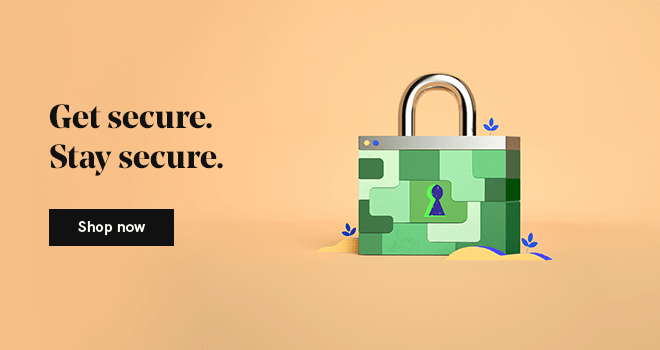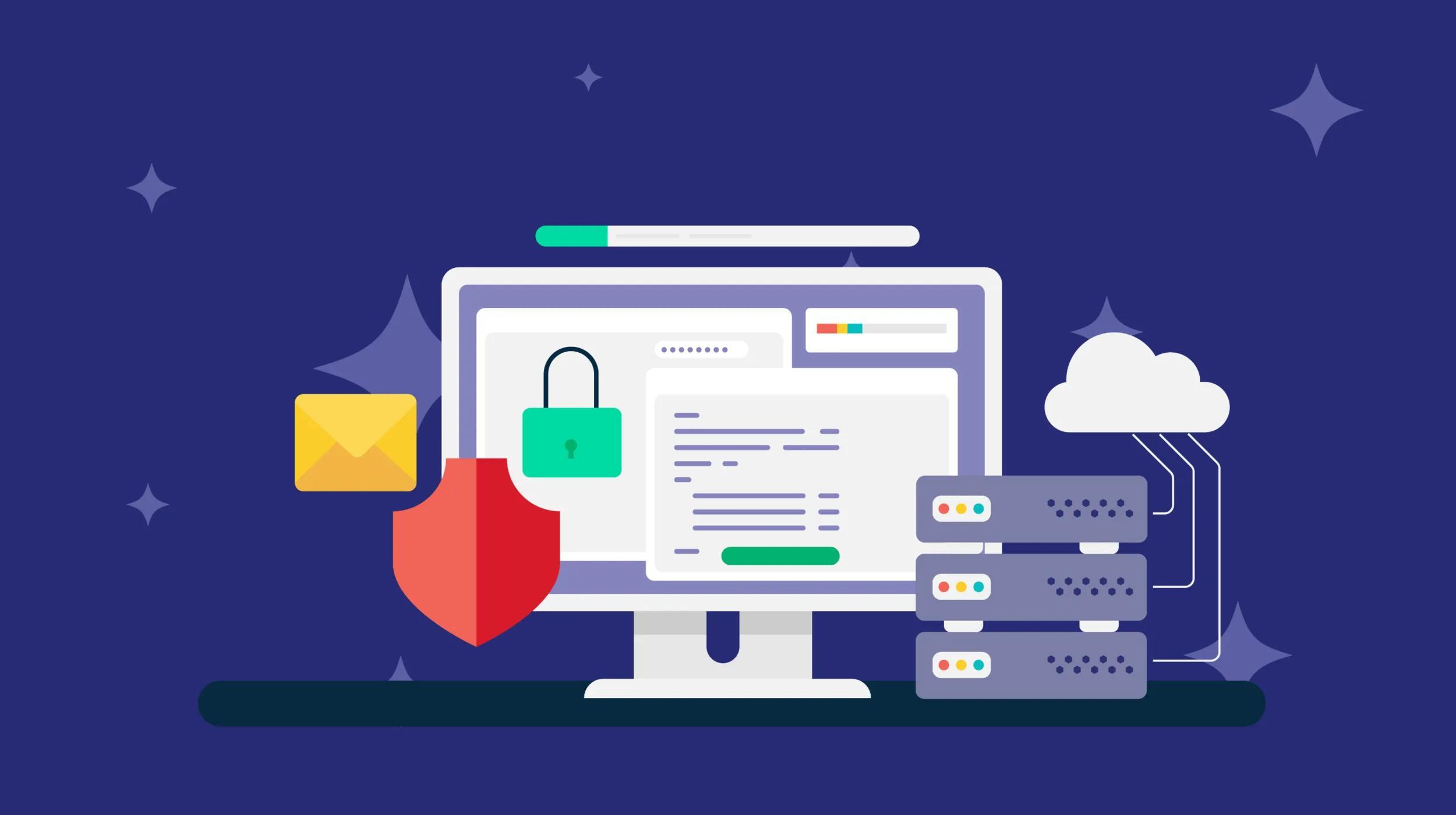Would you believe that more than 50 percent of your web traffic might be from bots, scrapers, hacking tools and scammers? You've probably received an email in your inbox with cybersecurity tips and brushed it aside. Maybe you've heard stories of websites being hacked, never thinking you could be a target. The sad truth is that hackers and scammers don't attack websites for personal reasons.
They do it for the thrill or for economic gain.
With that in mind, how do you protect your small business website from lurking hackers? These cybersecurity tips for small businesses can help.
5 cybersecurity tips for your small business website
As a small business owner, you are an expert on your products and services. No one expects that you’re a master of web security, which is why small business websites are particularly vulnerable to an attack.
Whether you’re a dog walker, an HVAC expert, a hypnotherapist, or a neighborhood restaurant, your website is a potential target. No matter your industry, if your website requires the input of sensitive information (even just email address or phone) then hackers are eyeing you like a fresh piece of meat.
Not to worry, though! You can beef up your security with these five easy tips:
- Use secure, unique passwords.
- Perform routine security checks.
- Keep your eye out for cybersecurity tips.
- Consider tools to safeguard your site.
- Install an SSL certificate right away.
To start building up your digital defenses, follow these five cybersecurity tips for your small business website.
Related: 5 industries that can’t ignore advanced web security
1. Use secure, unique passwords
It's amazing the amount of information we store online.
Think about it: Everything from your thermostat to your personal computer to your bank accounts has a password attached to it.
Now, if you're like some people I know, you might use the same password for everything. That's a huge "no-no." If a hacker or scammer correctly guesses your password on one account, it's easy to find and access your other accounts including your website. That’s why it’s essential to create strong, unique passwords.
Some food for thought: A password with only seven alpha characters can be guessed in less than a second.
Here are some keys to crafting the perfect password:
- Don't recycle your passwords.
- Don't choose easy-to-guess security questions.
- Use more than one word.
- Use numbers and symbols, but never in sequence.
- Use passwords at least 12 to 15 characters in length.
Remember to always change your passwords every quarter, at the very least, to keep your website safe.
Related: Password managers do the heavy lifting of online security
2. Perform routine security checks

If you're a fan of “Game of Thrones,” then you know that the Night's Watch exists to guard the realms of men from whatever roams beyond the wall.
Just like the Night's Watch, you must patrol vigilantly and perform a routine security check to ensure nothing has penetrated your stronghold. If you don't watch “Game of Thrones,” just imagine a soldier patrolling the castle towers, waiting to head off an attack.
Either way, you need to know that an attack can come at any time, so routinely checking the security of your site is mission-critical.
Editor’s note: GoDaddy Website Security scans your website for malware and removes it if found. It even monitors brand reputation, performs Google blocklist monitoring and removal and more.
3. Keep your eye out for cybersecurity tips and updates
The world of cybersecurity is ever-changing, so it's important to stay up to date on all cyberthreats.
If you find yourself short on time (and who doesn't), consider subscribing to some industry-leading newsletters. I suggest subscribing to the Sucuri Security newsletter, which is especially useful for learning about new vulnerabilities and cyberthreats as they happen.
Another amazing blog/newsletter combination is Krebs on Security. The author, Brian Krebs, was a victim of hackers and became obsessed with cybersecurity. Since then, he's published a daily blog focused on online crime investigations, the latest cyberthreats and data breaches, and security updates in the hacking world.
It's one thing to subscribe to these newsletters, but the real benefit is in actually reading them.
You'll be amazed at what you can learn from just a few minutes every day. Be sure to dedicate the time it takes to peruse both newsletters to protect your small business website from looming threats.
Of course, you also want to continue tuning in to trusted sources and blogs. There are plenty of well-informed, easy-to-understand blog posts that will keep you informed on the latest threats as well as the latest cybersecurity tips and tools. Some pages to get you started:
- How to handle malware detected on your website
- 5 reasons why it’s important to perform a website backup
- How to do your own website security audit
Related: Understanding Online Security Threats
4. Consider tools to safeguard your site
It wouldn't hurt to introduce you to some tools that can help you monitor and ward off cyberthreats before they can even touch your small business website. And if your website has already been infected with malware, for instance, GoDaddy offers Express Malware Removal to help fix your website when it's hacked.
Even better, there's a monthly subscription that allows you to safeguard your website with automatic daily backups and one-click restore. Best of all is the Website Security tool that monitors your small business website 24/7/365 for malware, blocklisting on Google and cyberattacks.
Related: AZHPA case study: Hacker-injected malware and a website spiraling out of control
5. Install an SSL certificate right away

An SSL certificate, or Secure Sockets Layer, helps protect information entered in your website by building a secure, encrypted connection between the website visitor's browser and the webserver.
Imagine the SSL certificate as a privacy wall. Everything that goes on behind it can’t be seen by prying eyes. So, if your customer is entering payment information on your website, their credit card number will be protected.
Beyond establishing trust with your customers, an SSL certificate also establishes trust with Google. If you don’t have a secure site (which an SSL certificate ensures), Google Chrome will mark your site as “not secure,” which can affect your rankings in search results.
That's right, your website's security also affects your SEO or search engine optimization.
They are so important that web browsers like Google Chrome recently began denoting websites as "not secure" if they do not have an SSL certificate installed.
An SSL certificate encrypts the data sent to your servers so that a customer's credit card information or home address (when being typed) will not be visible to anyone trying to steal that data through the web. SSL certificates are easy to install and provide protection for your website on an annual business.
Putting it all together
It's important for you to stay in the loop, and follow new cybersecurity tips from the experts. Be sure to use unique and complex passwords, change those passwords every 3 months, perform routine security checks, back up your website regularly, consider a malware detection tool, and install an SSL certificate right away. There are many more cybersecurity tips to follow, but these five will provide you with a solid digital defense to start.









